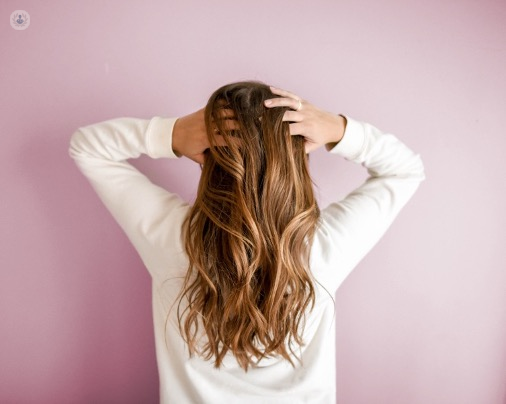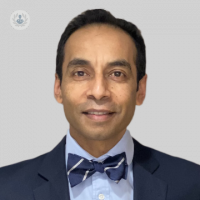Alopecia: diagnosis and treatment
Escrito por:Its estimated that alopecia affects about 15 in 10,000 people. The condition can result in a loss of self-esteem, anxiety and even depression.

We recently spoke with leading dermatologist, Dr Ravi Ratnavel, to learn about the signs of this condition and to find out whether there are overlapping symptoms with other conditions. We also found out what some of the home remedies are and whether alopecia can be cured.
What signs/symptoms indicate that someone should see a dermatologist for alopecia?
The term alopecia covers a large number of conditions with hair loss.
If a patient can see definite bald patches (rather than increased hair loss with normal hair growth) they should see a dermatologist as soon as possible.
Most causes of alopecia are treatable but delay can lead to irreversible loss of hair. This is particularly important when there are signs of inflammation visible on the scalp.
Can alopecia have overlapping symptoms with other conditions?
Yes. There may be underlying issues such as anaemia or underactive thyroid gland (cross-link to my other hair loss article).
In other cases, there may be a skin rash (e.g. lichen planus or psoriasis) joint pains (lupus erythematosus) or acne / hirsutism (polycystic ovary syndrome).
How is alopecia diagnosed?
Most patients can be diagnosed following clinical examination by a qualified consultant dermatologist (as listed on the GMC register). Trichologists are not doctors.
Occasionally a scalp hair biopsy is required to confirm the diagnosis or distinguish between similar-looking conditions.
Alopecia conditions are broadly divided into non-scarring and scarring types. Known forms of alopecia have a physiological basis such as pregnancy, post-menopause, and the normal ageing process.
What treatment can a dermatologist provide for alopecia?
An accurate diagnosis is a cornerstone for proper treatment. Options include steroid injections and anti-inflammatory drug therapies.
If the condition is already well established, then the goal of therapy is to prevent further hair loss. Alopecia can usually be reversed in early cases only.
Can home remedies or lifestyle habits support alopecia treatment?
A healthy balanced diet, stress management and good sleep can all definitely help. Most patients are not vitamin/mineral deficient but broad-spectrum supplements do no harm and can help.
There is little role for special shampoos other than keeping the scalp clean and healthy, which can help with symptoms of itch.
Can alopecia be fully cured?
It depends upon the underlying cause of which there are many and how advanced the condition is at the time of presentation.
Effective treatment can prove very challenging in some aggressive and rare types of alopecia.
If you require treatment for alopecia, we recommend getting in contact with leading dermatologist Dr Ravi Ratnavel . Feel free to visit his profile today for more information.


